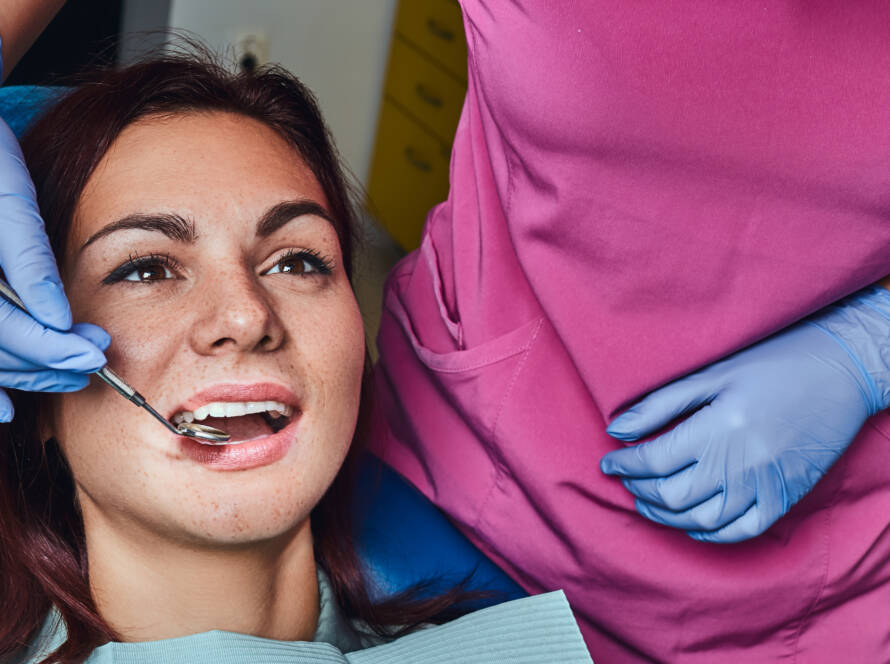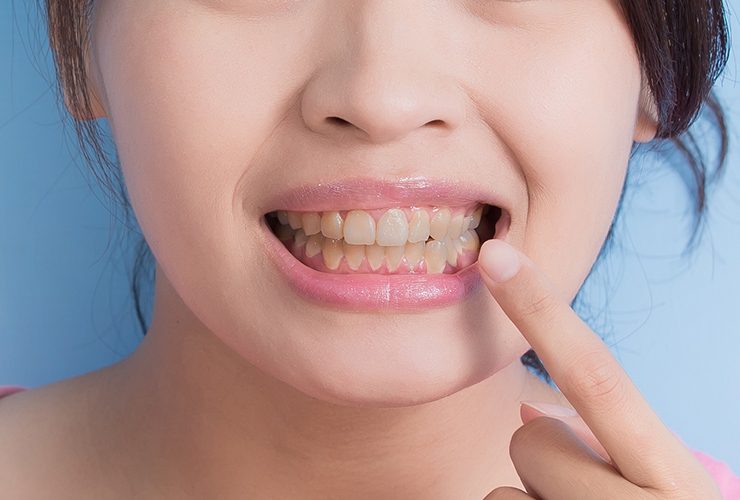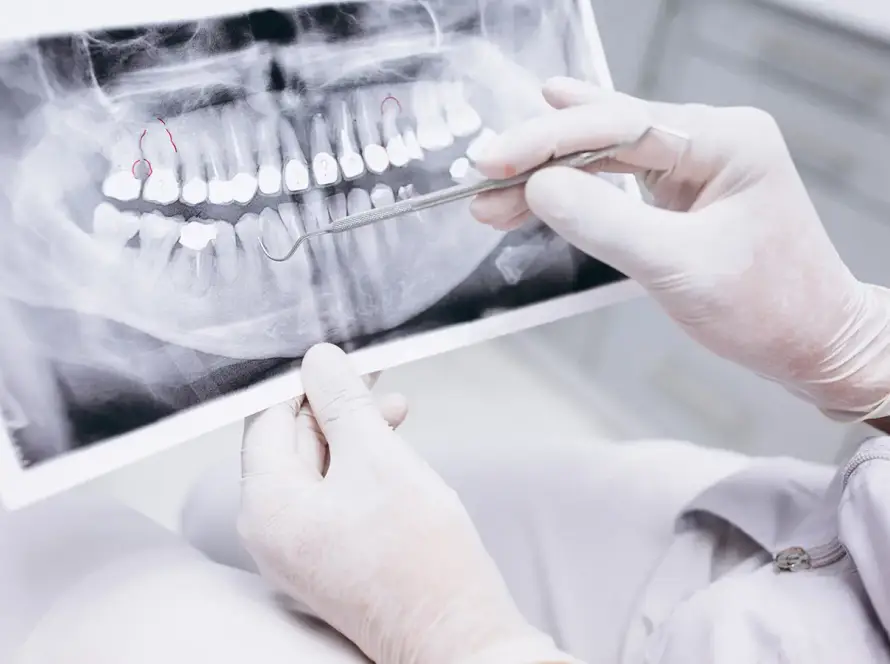Dental issues and earaches may seem unrelated, but there is a strong connection between the two. Many people experience earaches that are actually caused by dental problems. This connection arises because the structures in the head, including the teeth and the ears, are closely interconnected.
When dental issues such as tooth decay, gum infections, or jaw problems occur, they can radiate pain to the ears. This happens when the nerves surrounding the teeth and ears become irritated or inflamed. In some cases, an infection in the teeth or gums can even spread to the ears, leading to earaches.
Moreover, the temporomandibular joint (TMJ), which is responsible for the movement of the jaw, is located in close proximity to the ear. If the TMJ becomes inflamed or dysfunctional due to dental issues, it can cause ear pain and discomfort.
It is important to note that earaches caused by dental problems can sometimes be misdiagnosed as regular ear infections. This can lead to ineffective treatment and prolonged discomfort for the patient. Therefore, understanding the connection between dental issues and earaches is crucial in order to receive appropriate dental care and alleviate ear pain.
In the following sections, we will explore common dental problems that can cause earaches and discuss the symptoms and treatment options for these issues. Understanding the interplay between dental health and ear health can help individuals seek timely intervention and prevent unnecessary discomfort.
Connection Between Dental Health and Ear Pain
When experiencing ear pain, one might not immediately think of dental issues as the potential cause. However, there is a strong connection between dental health and ear pain that should not be overlooked. Here are some key points to understand this connection:
- Trigger points in the jaw: The temporomandibular joint (TMJ) connects the jawbone to the skull. When there are issues with the TMJ, such as misalignment or inflammation, it can cause pain not only in the jaw but also radiate to the ears. This is known as referred ear pain.
- Tooth infections: Dental infections, such as tooth decay or abscesses, can spread to the surrounding tissues, including the nerves and blood vessels. When the infection reaches the nerves near the ear, it can result in ear pain.
- Sinus inflammation: Dental health can be linked to sinus problems. Inflammation of the sinuses can put pressure on the adjacent nerves, leading to ear pain. Sinusitis can be caused by dental infections or other oral health issues.
- Bruxism (teeth grinding): Bruxism is a common dental problem that involves grinding or clenching the teeth. This can put strain on the jaw joint and surrounding muscles, leading to ear pain.
- Tension headaches: Poor dental alignment, bite problems, or dental issues that affect the jaw joints can contribute to tension headaches. These headaches may cause ear pain as well.
It is important to consult with both a dental professional and an ear specialist when experiencing ear pain to determine the underlying cause. Addressing any dental issues promptly can help alleviate ear pain and prevent further complications. Signs and Symptoms of Dental Issues Manifesting as Earaches
When experiencing earaches, it is important to consider that they could be a result of underlying dental problems. The following signs and symptoms may indicate a dental issue manifesting as an earache:
- Toothache: Dental pain can radiate to the surrounding areas, including the ear. If you have a toothache along with an earache, it is essential to consult a dentist to evaluate the source of the discomfort.
- Jaw pain: Dental problems such as temporomandibular joint disorder (TMJ) or bruxism (teeth grinding) can cause jaw pain, which can radiate to the ear. If you have jaw pain along with an earache, it is recommended to consult a dentist for further evaluation.
- Gum infections: Gum infections, such as periodontal disease or gum abscesses, can cause pain that may be perceived as an earache. In these cases, proper dental care is necessary to treat the underlying infection and alleviate symptoms.
- Sinusitis: Dental issues, such as infected teeth or gum disease, can lead to sinusitis, which can cause earaches. If you are experiencing recurring earaches along with sinusitis symptoms, it is crucial to visit a dentist for a comprehensive examination.
- Dental trauma: Any dental trauma, such as a cracked tooth or a dislodged filling, can result in referred pain to the ear. Prompt dental treatment is essential to address the trauma and alleviate earache symptoms.
- Tooth sensitivity: Teeth sensitivity to hot or cold temperatures can sometimes be associated with ear discomfort. This can be a sign of dental issues like tooth decay, enamel erosion, or exposed tooth roots that may require dental intervention.
- Swelling or tenderness: Swelling or tenderness in the jaw area can accompany an earache, indicating an underlying dental problem. A thorough evaluation by a dentist can help identify the cause and provide appropriate treatment.
It is important to note that while earaches can be linked to dental issues, they can also be caused by other medical conditions. Consulting with both a dentist and a healthcare professional can help determine the root cause of the earache and provide appropriate treatment.
The Role of Sinus Infections and TMJ Disorders
Sinus infections and TMJ (temporomandibular joint) disorders can play a significant role in causing earaches and dental problems. Sinus infections occur when the sinuses, which are air filled cavities in the skull, become inflamed and filled with mucus. These infections can lead to symptoms such as congestion, facial pain, and pressure. In some cases, the inflammation and congestion can cause referred pain to the ears, resulting in earaches.
On the other hand, TMJ disorders involve dysfunction or misalignment of the temporomandibular joint, which connects the jawbone to the skull. This can occur due to factors like teeth grinding, clenching, or arthritis. TMJ disorders can cause a variety of symptoms, including jaw pain, difficulty in opening or closing the mouth, and even ear pain. The close proximity of the temporomandibular joint to the ear can result in referred pain, making it challenging to pinpoint the source of the discomfort.
In addition to earaches, sinus infections and TMJ disorders can also contribute to dental problems. Sinus infections can lead to toothache like pain, as the inflammation can affect the surrounding teeth. The pressure from the sinuses can also lead to tooth sensitivity or a feeling of tooth movement. Similarly, TMJ disorders can cause dental issues such as teeth misalignment, excessive wear on the teeth, or even fracturing of dental restorations.
It is essential to acknowledge the connection between sinus infections, TMJ disorders, and earaches to ensure proper diagnosis and treatment. Seeking medical or dental attention is crucial if you are experiencing persistent earaches or dental problems, as a comprehensive evaluation can identify the underlying cause and facilitate appropriate management.
Diagnosis and Treatment of Dental Problems Causing Ear Pain
When it comes to diagnosing and treating dental problems that may be causing ear pain, it is crucial to consult a dental professional. Here are some key steps in the diagnostic and treatment process:
- Dental Examination: A comprehensive dental examination will be conducted by the dentist to evaluate the oral health and identify any potential dental issues. This may include checking for tooth decay, gum disease, impacted wisdom teeth, or temporomandibular joint (TMJ) disorders.
- X-rays: X-rays may be taken to get a detailed view of the teeth, jawbone, and surrounding structures. This can help identify any abnormalities or dental conditions that might be causing ear pain.
- TMJ Evaluation: If the dentist suspects a TMJ disorder, a specific evaluation may be performed. This can involve assessing the jaw joint’s range of motion, checking for joint sounds or clicking, and evaluating bite alignment.
- Collaboration with Ear, Nose, and Throat (ENT) Specialists: In cases where the ear pain is persistent or there is a potential connection to other head and neck structures, the dentist may collaborate with ENT specialists to reach a definitive diagnosis.
- Treatment Options: The treatment of dental problems causing ear pain will depend on the specific diagnosis. Some common treatment options may include:
- Dental fillings or restorations for decayed teeth
- Scaling and root planing for gum disease
- Orthodontic treatment for misaligned teeth or malocclusion
- Extraction of impacted wisdom teeth
- Bite splints or oral appliances for managing TMJ disorders
- Referral to an ENT specialist for further evaluation and treatment if necessary.
It is important to promptly seek professional dental care if you are experiencing ear pain to ensure an accurate diagnosis and appropriate treatment. Ignoring dental issues that may be causing ear pain can lead to further complications and discomfort.
Preventive Measures for Dental Health and Earache Prevention
Preventing dental problems and reducing the risk of earaches can be achieved by following a few simple preventive measures. Here are some important steps to incorporate into your oral hygiene routine:
- Brush and floss daily: Regular brushing and flossing help remove plaque and prevent tooth decay and gum disease. Use a soft bristled toothbrush and fluoride toothpaste to clean your teeth at least twice a day. Don’t forget to floss between your teeth to remove any food particles and bacteria.
- Maintain a healthy diet: A balanced diet plays a crucial role in maintaining dental health. Limit sugary foods and beverages as they can contribute to tooth decay. Instead, opt for a diet rich in fruits, vegetables, and whole grains, which provide essential nutrients for healthy teeth and gums.
- Visit your dentist regularly: Scheduling regular dental check ups is essential for keeping your teeth and gums healthy. Dentists can identify any early signs of dental issues and provide appropriate treatment. Aim to visit your dentist every six months for a thorough examination and professional cleaning.
- Avoid tobacco and limit alcohol consumption: Tobacco use and excessive alcohol consumption can lead to gum disease and increase the risk of oral cancer. Quitting smoking and limiting alcohol intake can significantly improve your oral and overall health.
- Protect your teeth during physical activities: If you participate in contact sports or activities that may put your teeth at risk of injury, consider wearing a mouthguard. Mouthguards can protect your teeth and prevent trauma that could lead to dental problems and potential earaches.
By following these preventive measures, you can significantly reduce the risk of dental problems and subsequently decrease the likelihood of experiencing earaches. Remember, good oral hygiene practices and regular dental care are key to achieving optimal dental and overall health.
When to Seek Professional Help
If you are experiencing persistent earaches and suspect a dental problem, it is important to seek professional help. Here are some situations in which it is advisable to consult a dental professional:
- Intense pain: If your earache is accompanied by severe, unmanageable pain, it is crucial to seek immediate dental attention. This could be a sign of a severe oral infection or abscess that requires prompt treatment.
- Prolonged discomfort: If your earache persists for more than a few days without any improvement, you should schedule an appointment with a dentist. Lingering ear pain could indicate an underlying dental issue that needs to be addressed.
- Difficulty opening your mouth: If you experience difficulty in opening your mouth or have limited jaw movement along with an earache, it may be indicative of temporomandibular joint (TMJ) disorder. A dentist can assess your condition and recommend appropriate treatment.
- Swelling or discharge: Swelling around the ear, along with ear drainage or discharge, may indicate a dental infection that has spread to the ear. This requires immediate attention from a dental professional to prevent further complications.
- Tooth pain coinciding with earache: If you are experiencing simultaneous tooth pain and earache, it could be a sign of an oral health issue affecting both areas. A dentist can examine your teeth and provide a diagnosis and treatment plan.
Remember, a dental professional is best equipped to diagnose and treat dental problems that may be causing your earaches. Seek prompt attention if you experience any of the above symptoms to prevent the condition from worsening and to alleviate any discomfort you may be experiencing.
The Importance of Regular Dental Check Ups
Regular dental check ups play a crucial role in maintaining optimal oral health. These check ups should be scheduled at least twice a year, but for individuals with specific dental issues, more frequent visits may be necessary. Here are some reasons why regular dental check ups are so important:
- Prevention of dental problems: Regular check ups allow dentists to identify potential issues before they become serious problems. Cavities, gum disease, and oral infections can be detected and treated at an early stage, preventing further damage and discomfort.
- Early detection of oral cancers: Dentists are trained to recognize the signs and symptoms of oral cancer. Regular check ups increase the chances of detecting oral cancer in its early stages, when it is most treatable.
- Professional cleaning: During check ups, dental hygienists perform professional cleanings, removing plaque and tartar buildup that cannot be eliminated through regular brushing and flossing. This helps prevent tooth decay and gum disease.
- X-rays and diagnostics: Dental check ups often involve X-rays, which help dentists identify issues that may be invisible to the naked eye. X-rays can reveal hidden decay, impacted teeth, and other abnormalities that require attention.
- Education and advice: Dentists can provide valuable education and advice during check ups, helping patients maintain good oral hygiene practices. They can also address any concerns or questions patients may have about their dental health.
Remember, regular dental check ups are not only important for maintaining oral health but also for overall well being. Neglecting dental check ups can lead to more serious and expensive dental treatments in the future. So, make sure to schedule those regular check ups and take care of your smile.
Lifestyle Changes for Better Oral and Ear Health
Taking care of your oral and ear health is crucial for overall well being. Fortunately, there are several lifestyle changes you can adopt to improve and maintain good oral and ear health:
- Practice good oral hygiene: Brushing your teeth twice a day using fluoride toothpaste and flossing daily helps remove plaque buildup and prevent tooth decay. Regular dental check ups and cleanings are also important to identify and address any oral health issues early on.
- Avoid smoking and excessive alcohol consumption: Smoking and heavy alcohol use can increase the risk of oral and ear infections, as well as contribute to gum disease and tooth loss. Quitting smoking and moderating alcohol intake can greatly benefit your oral and ear health.
- Maintain a well balanced diet: Eating a diet rich in fruits, vegetables, whole grains, and lean proteins can provide the necessary nutrients for healthy teeth and gums. Limiting sugary snacks and beverages can also help prevent tooth decay.
- Protect your ears: When engaging in activities that expose your ears to loud noises, such as concerts or using power tools, wearing earplugs or protective earmuffs can help prevent damage to the delicate structures of the ear.
- Avoid using cotton swabs in the ears: Inserting cotton swabs or other objects into the ear canal can push earwax deeper and potentially cause damage. Instead, let your body’s natural cleaning mechanisms take care of earwax buildup, or consult a healthcare professional if you have excessive earwax.
- Manage stress: Chronic stress can weaken the immune system and contribute to oral health problems. Engaging in stress reducing activities like exercise, meditation, and getting enough sleep can help maintain optimal oral and ear health.
Remember, it’s important to consult with a qualified healthcare professional or dentist for personalized advice regarding your specific oral and ear health needs. Adhering to these lifestyle changes can significantly improve your oral and ear health, promoting a better quality of life.
Conclusion and Final Thoughts
In conclusion, there is a clear connection between earaches and dental problems. The close proximity of the ear, jaw, and teeth makes it possible for infections or issues in one area to affect the other. The most common dental problems that can lead to earaches include tooth decay, gum disease, impacted wisdom teeth, and temporomandibular joint (TMJ) disorders. Misalignment of the jaw or teeth can also contribute to ear pain.
Recognizing and addressing the underlying dental issue is crucial in alleviating earache symptoms. It is important to consult with both a dentist and an ear, nose, and throat specialist to accurately diagnose and treat the problem. Proper oral hygiene practices, regular dental check ups, and prompt treatment of dental issues can help prevent earaches associated with dental problems.
Maintaining overall oral health is essential for preventing not only dental problems but also potential complications, including earaches. By addressing dental issues promptly and improving oral hygiene habits, individuals can minimize the risk of experiencing ear pain and discomfort related to dental problems.
Remember, if you are experiencing persistent earache in conjunction with dental issues, it is recommended to seek professional medical advice to determine the root cause and receive appropriate treatment.















